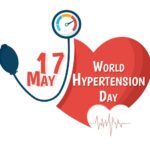An effort to spread awareness about epilepsy
Bangalore, November 10, 2018:
Epilepsy ranks among the most commonly encountered serious neurological conditions, and medically, refractory epilepsy is a major concern not only for patients and their families but also for society at large. Treatment options are varied, ranging from medical management to surgical intervention. To discuss these issues and the new technologies to treat epilepsy, the Department of Neurosciences, Aster CMI Hospital hosted EPIJNAN 2018 today, an international interactive conference focusing on recent advances and latest approaches in epilepsy surgery. One of the important highlights of this program shall be the HANDS-ON CADAVER WORKSHOP which will be held tomorrow.
Doctors at the conference looked at a variety of issues ranging from the understanding of different aspects of epilepsy to the latest technologies that have emerged in treating the ailment. The experts discussed whether epilepsy is a progressive disorder, new therapeutic approaches, best practice guidelines for the management of women with epilepsy, early identification of refractory epilepsy, the selection of ideal candidate for epilepsy surgery, Imaging and MEG in epilepsy surgery, surgeries for different epileptic conditions and their complications, recent advances like neuro-navigation and epilepsy surgery, robotic application in epilepsy surgery, neuro-endoscopy and neuromodulation in epilepsy among other issues.
Dr. Ravi Gopal Varma, Chief of Neurosciences and Lead Consultant Neurosurgery, Neurosciences department, Aster CMI Hospital, Bangalore said: “Our goal is to create greater awareness on multiple aspects of epilepsy and the new technological options to treat this ailment. We now have robotics treatment in epilepsy surgery which is a path-breaking technology to treat the condition. There are many advances like neuro-navigation in epilepsy surgery, which society at large should know. The conference discussed all these issues on epilepsy: how it occurs, what are the effects, treatment options, implications of surgery, and technological advances in treatment. It was a very informative programme that saw the participation of specialists from all over the country.”
Almost half of the people diagnosed with epilepsy can become seizure free within a few years with proper treatment. Many of these people may not have any more seizures. It is important to improve awareness of recent advances in treatment of epilepsy, added Dr. Ravi Gopal Verma
Compared to last few years, there are several options that are safer and more effective than they used to be. Epilepsy doesn’t have to hold you back.







